
The opium smokers appeared only briefly in the original story that ran in LIFE, a photo essay from 1949 about life in what was, then, French Indochina. The area that is now Vietnam was bucking French colonial rule, and the magazine saw its citizens as symbols of the “question of empire in the 20th century.” Among a series of picturesque scenes from a “rich, beautiful” dying system, there they were: three opium smokers, seen in the first slide above, at a detox clinic in Saigon.
On the United Nations International Day against Drug Abuse and Illicit Trafficking, which falls every year on June 26, one detail from that caption stands out: opium, the magazine explained, was a high-revenue monopoly product of the French government in Indochina. In other words, the abuse side of the situation—addiction and its ravages—was inextricable from the trafficking side, the economic motivation to keep illicit substances available. (Of course, this was not the only example of opium’s implication in a controversial colonial system: China and Britain fought two wars in the 19th century over the opium trade.)
At the time, LIFE reported, more than half of the population of the city smoked the drug—and one-fifth of the French administrative budget came from sales of it.
By 1950, TIME noted that the system existed “to French shame.” But it existed nonetheless.
One of the ways opium was made so readily available in Saigon at the time was at the detox clinics like the one where these photos were taken. These clinics – to some observers, they would be more accurately described as “dens” – used to sell increasingly small doses, which could taper an addiction.
Whether they actually helped anyone recover from addiction is a mystery the photographs cannot reveal.


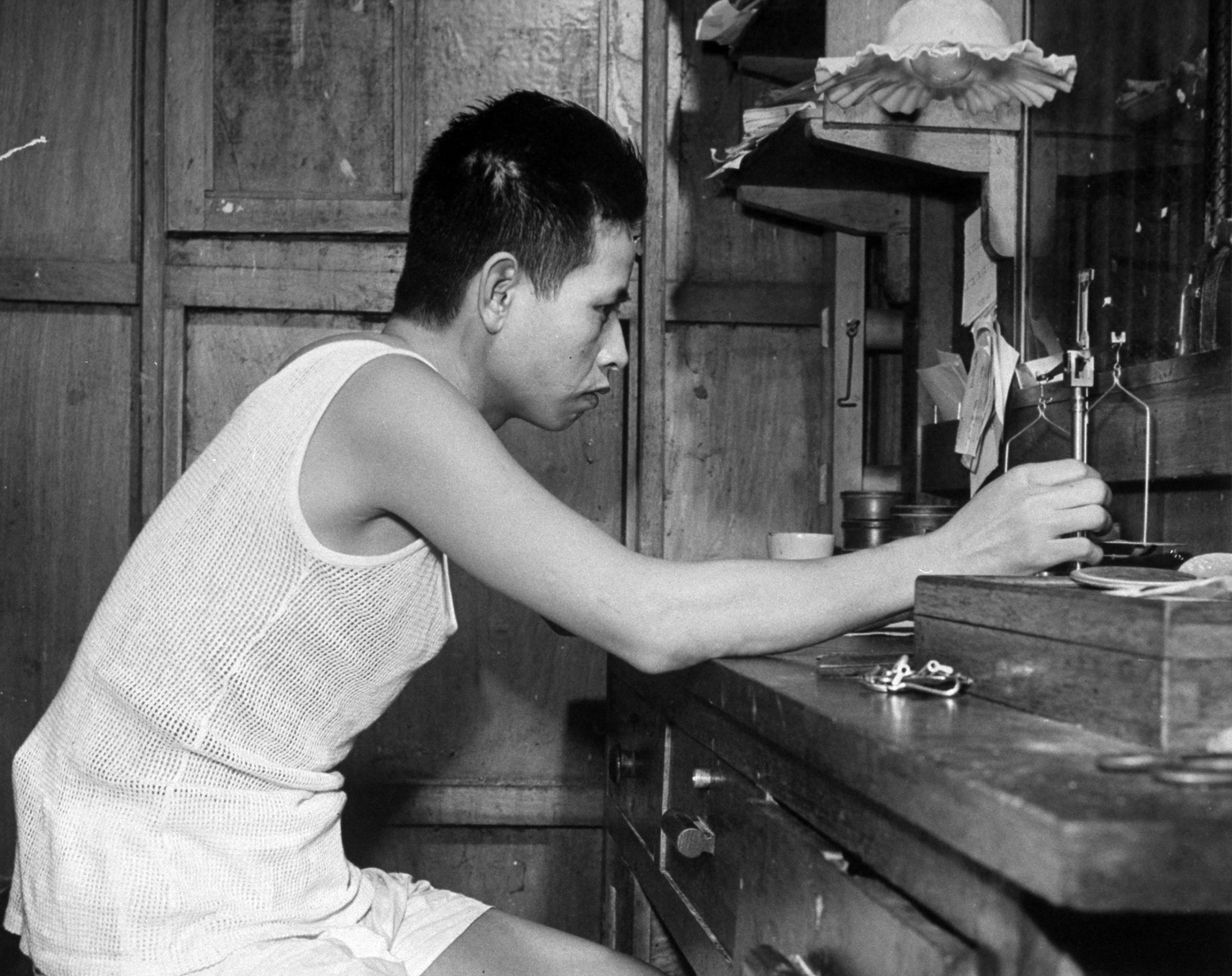


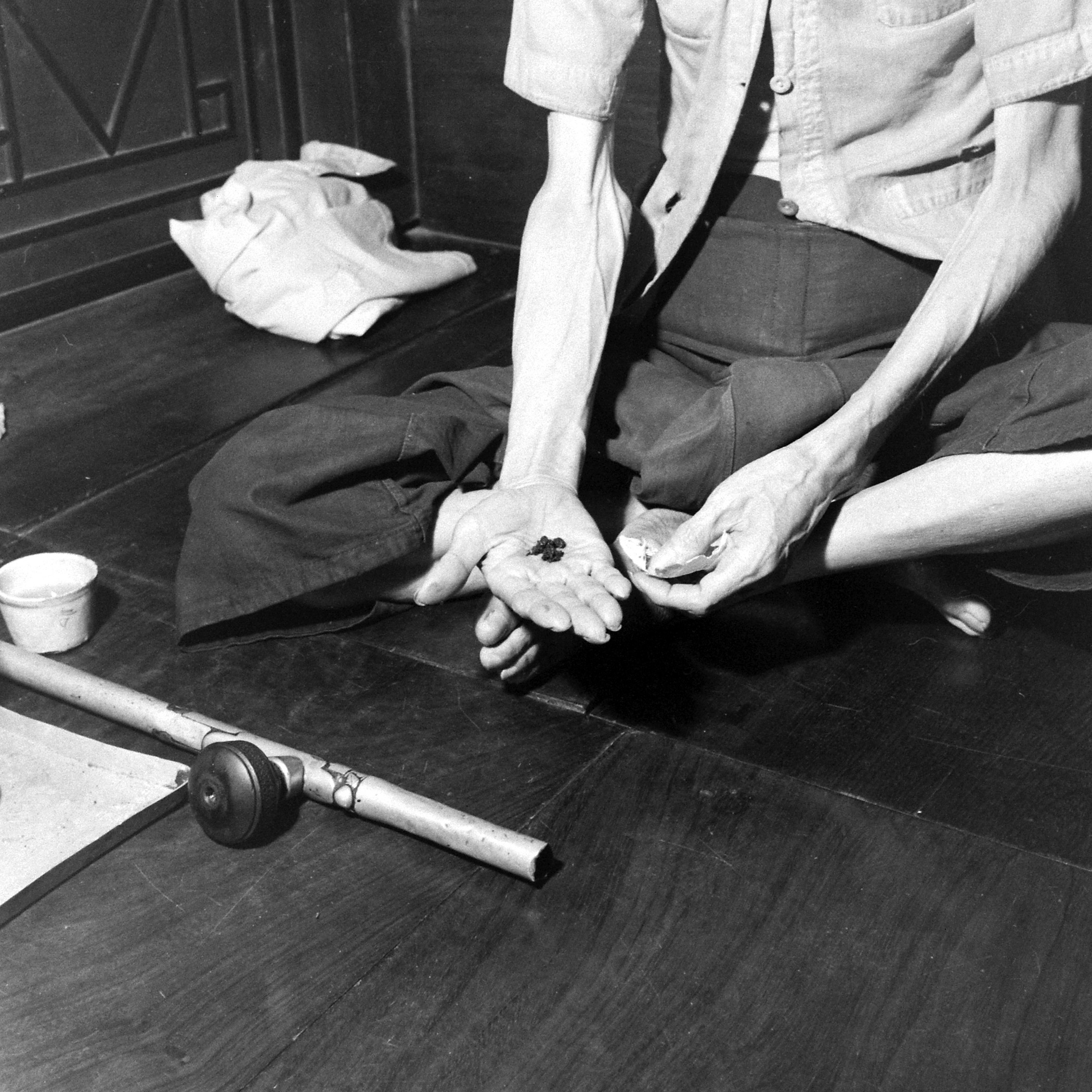
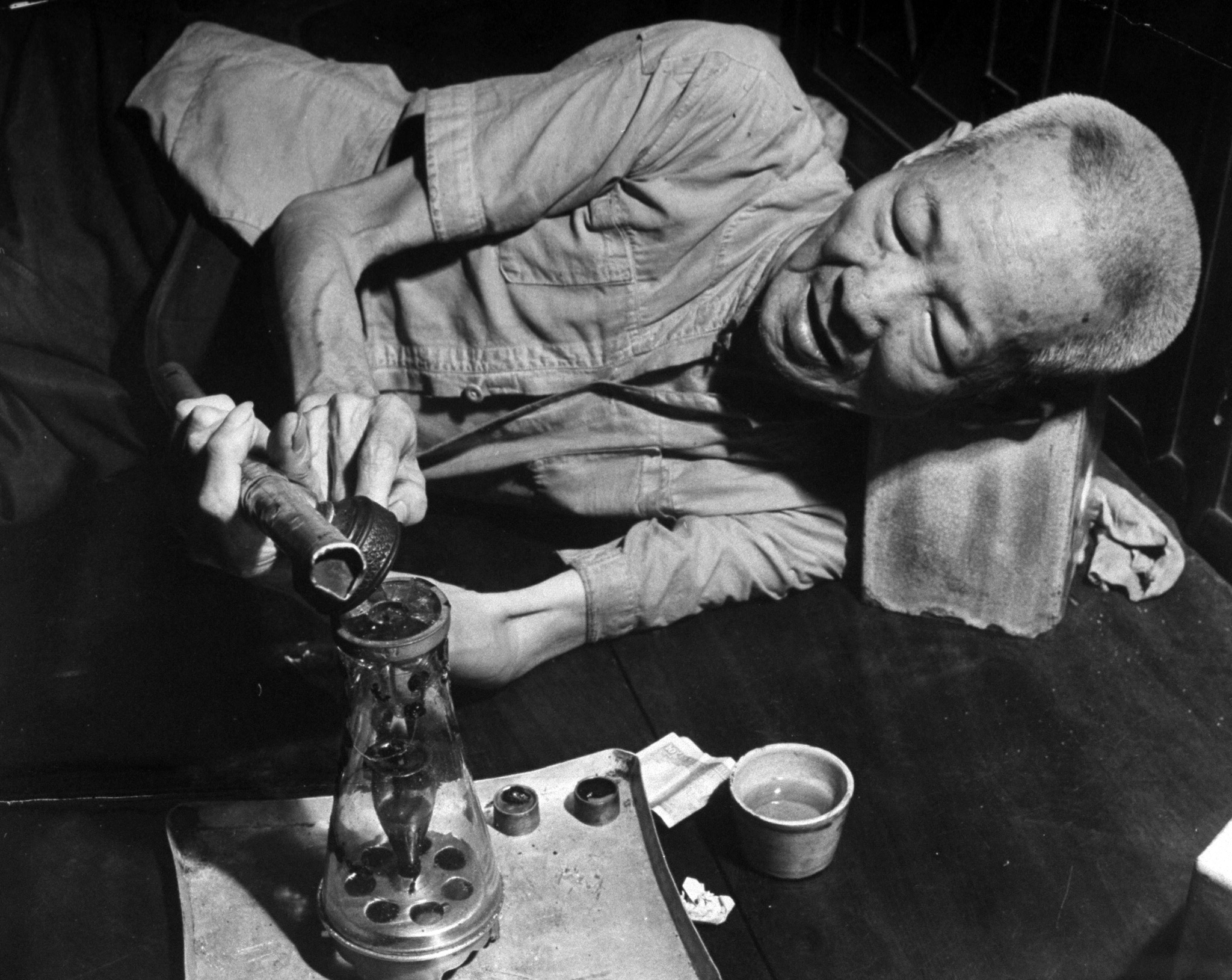
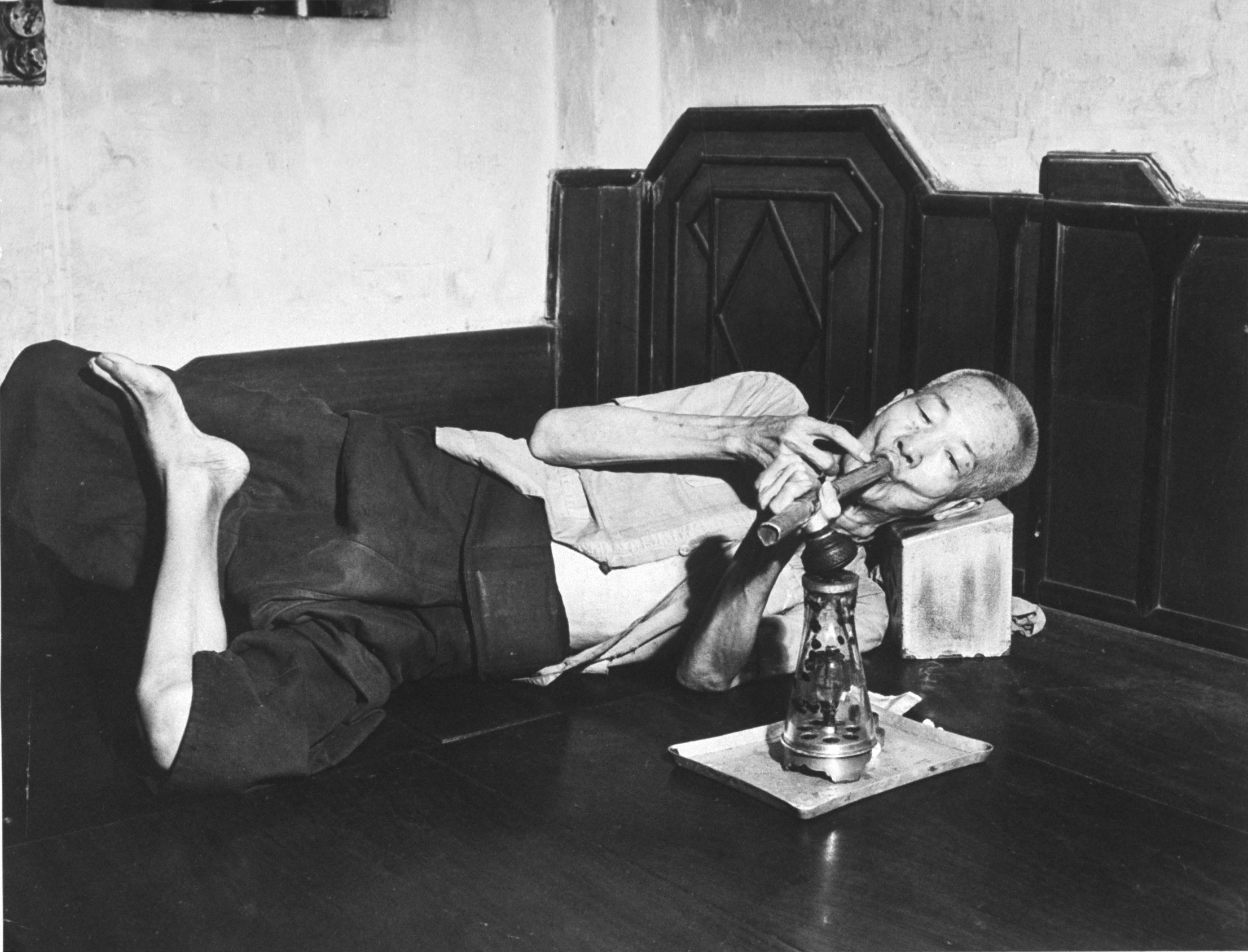
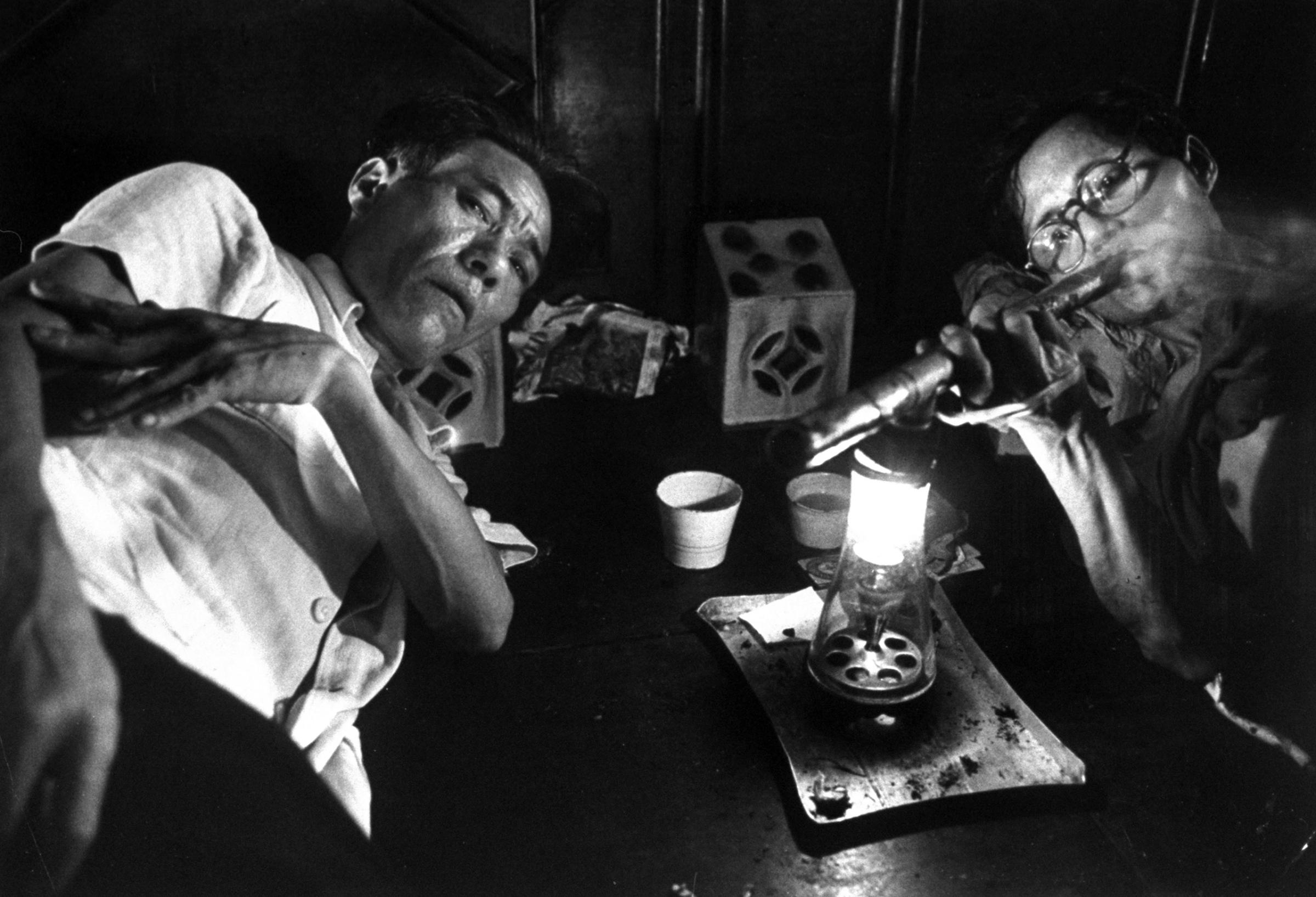
More Must-Reads From TIME
- The 100 Most Influential People of 2024
- Coco Gauff Is Playing for Herself Now
- Scenes From Pro-Palestinian Encampments Across U.S. Universities
- 6 Compliments That Land Every Time
- If You're Dating Right Now , You're Brave: Column
- The AI That Could Heal a Divided Internet
- Fallout Is a Brilliant Model for the Future of Video Game Adaptations
- Want Weekly Recs on What to Watch, Read, and More? Sign Up for Worth Your Time
Write to Lily Rothman at lily.rothman@time.com